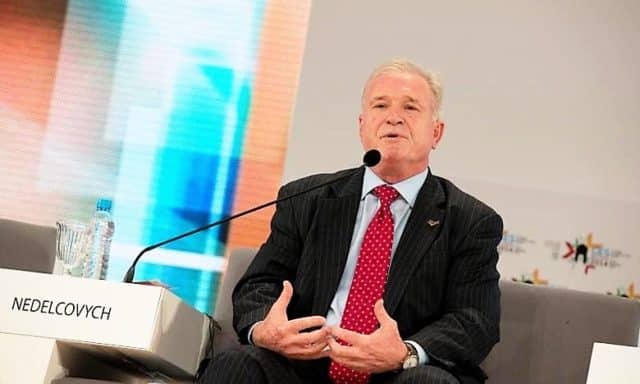The committee reached a complete agreement on the points related to the election of the President of the State and the members of the National Assembly
The Joint Committee for the preparation of electoral laws in Libya “6 + 6” announced on Tuesday the achievement of a complete agreement on a number of files related to the holding of elections in the country.
This is according to a statement read by the spokesperson for the joint committee, Omar Muhammad Abu Lifa, during a press conference in the town of Bouznika, in northwestern Morocco.
Abu Lifa said the committee “reached full agreement on the issues related to the election of the state president and members of the National Assembly, in addition to how to involve parties in the elections. in Parliament through partisan lists or individual candidacies”.
“There is progress in the definition and distribution of seats in the House of Representatives and the Senate according to electoral districts, and the procedures for the formation and approval of lists of nominations, representation of women, and control of crimes. elections,” he added.
Abu Lifa indicated that there has been progressing in the agreement on the “electoral appeal procedures for the elections of the President of the State, the House of Representatives and the Senate, and the regulation of the right of all candidates to have equal access to government and private media platforms.”
He specified that “the next legislative authority (the National Assembly) will be composed of two chambers: the House of Representatives and the Senate, which takes time to develop and control its legislation”.
The spokesperson did not provide additional details on the nature of the progress of these files.
He underlined that “the legislative and presidential elections will be organized according to simultaneous procedures”.
According to Abu Lifa, the commission affirmed its concern to complete the preparation of various draft electoral laws during the ongoing meetings in Morocco, in order to reach a consensual and comprehensive legislative framework for the elections in Libya, in constant consultation with the judicial bodies and technical bodies represented by the High National Electoral Commission and the United Nations Support Mission in Libya.
Since Monday, Morocco has been hosting meetings of the “6+6” commission, made up of “6” members of the Libyan House of Representatives and their counterparts from the High Council of State (parliamentary advisory) to arrive at electoral laws “ consensus” under which elections will be held in their country in 2023.
Morocco has already hosted 5 rounds of dialogue between the parties to the conflict in Libya, which culminated in January 2021, in the conclusion of an agreement on a mechanism for exercising sovereign positions, in addition to a meeting between the delegations of the High Council of State and the Chamber of Representatives on the electoral law in September 2021.
In order to resolve the power struggle in this oil-rich country, the United Nations is sponsoring negotiations between the House of Representatives and the High Council of State (Upper House of Parliament – consultative – based in Tripoli) to agree on a basis constitutional right to hold legislative and presidential elections, but this path was blocked for some time.
The Bashagha government has won the confidence of the House of Representatives in Tobruk (east), despite the existence of a government recognized by the United Nations, which is the government of national unity led by Dbeibeh, who refuses to cede power other than a government appointed by a newly elected parliament.














